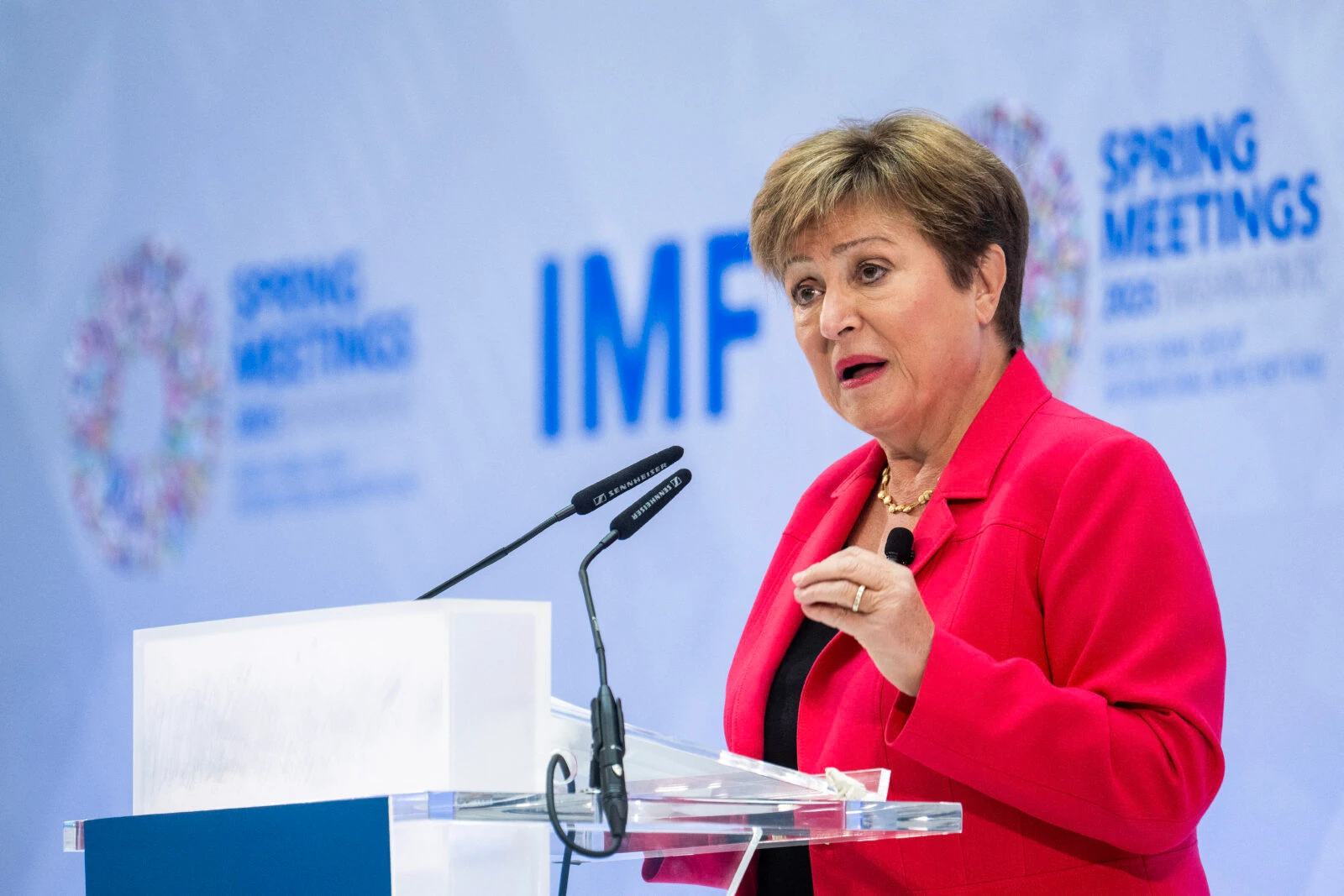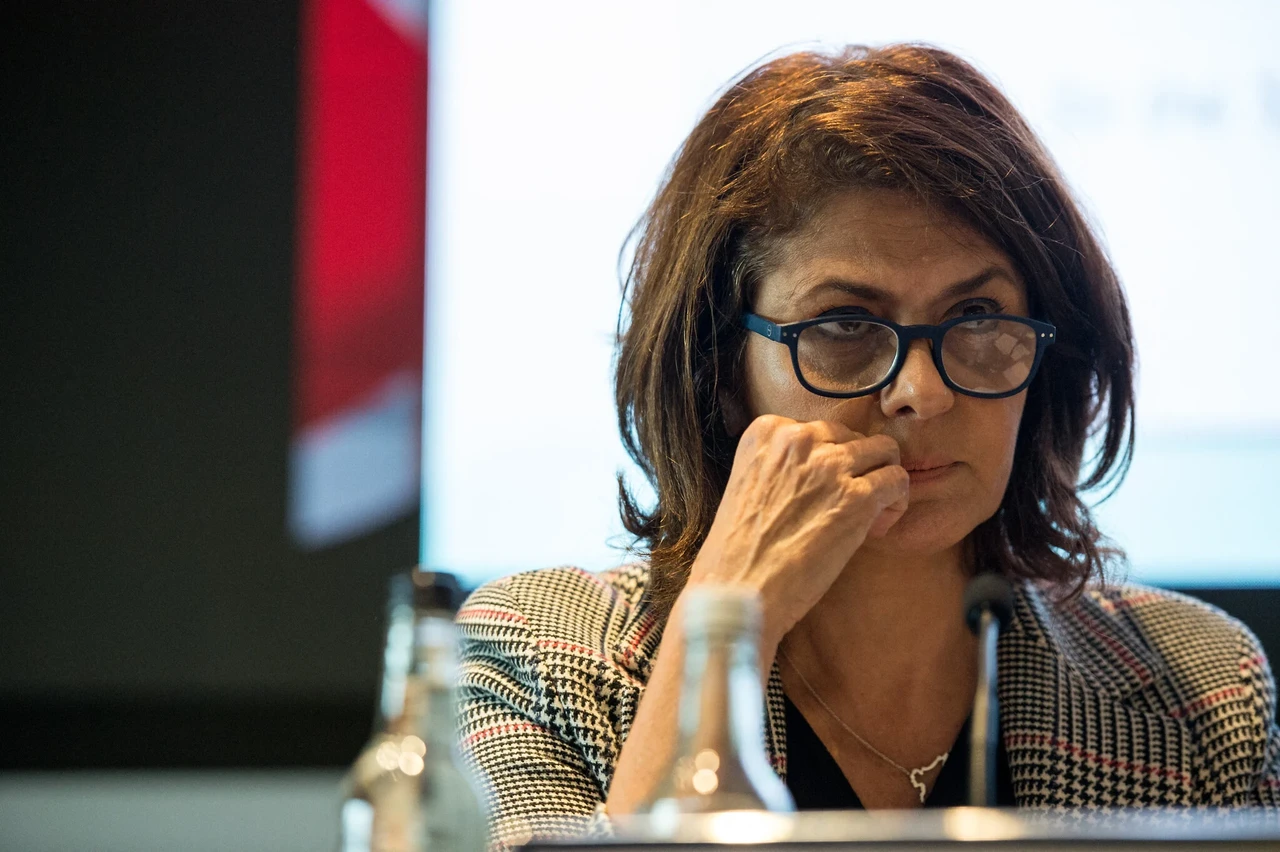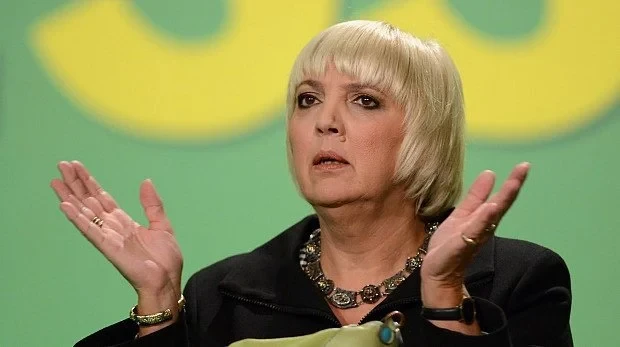Global growth to slow, but recession unlikely: IMF
 IMF Managing Director Kristalina Georgieva arrives to deliver a keynote speech ahead of the IMF/WB Spring Meetings at IMF headquarters in Washington, DC, on April 17, 2025. (AFP Photo)
IMF Managing Director Kristalina Georgieva arrives to deliver a keynote speech ahead of the IMF/WB Spring Meetings at IMF headquarters in Washington, DC, on April 17, 2025. (AFP Photo)
The International Monetary Fund (IMF) will significantly revise down its global growth forecasts in its upcoming World Economic Outlook, though a recession is not anticipated, IMF Managing Director Kristalina Georgieva announced on Thursday.
Speaking in Washington ahead of next week’s Spring Meetings co-hosted by the IMF and the World Bank, Georgieva attributed the downgrades to increasing fragmentation in global trade. She noted that a wave of tariffs and non-tariff barriers—most recently triggered by U.S. President Donald Trump’s renewed protectionist policies—has begun to reshape the structure of international commerce.
“We will quantify these costs in our new World Economic Outlook,” Georgieva said, adding that while growth projections are being revised downward, inflation expectations will be raised for several economies.

Describing the current trade environment as a “boiling pot” fueled by an erosion of trust in multilateral systems, she emphasized that governments are now leaning toward closer ties with regional or ideologically aligned partners. “Trade will continue, but disruptions will cause costs,” she warned, pointing to the ripple effects of ongoing U.S.-China-EU tensions on markets and inflation.
‘Scale of tariffs caught many off guard’
In an exclusive interview with Agence-France Presse (AFP), Georgieva further stated that countries must adapt to the emerging multipolar world rather than hoping for a return to a unified global trading system. “It’s much better for the world to get one system of rules, and hopefully we retain the basic principles of that system,” she said. “But we are in a multipolar world, and we must make the best out of it.”
She acknowledged that the Trump administration’s tariff campaign—featuring a 10% baseline rate for most trade partners and new levies of up to 145% on Chinese goods—has accelerated this shift. While such measures reflect longstanding concerns about unfair trade practices and national security, she said the scale of the U.S. response had caught many off guard.
Despite these disruptions, Georgieva expressed optimism that negotiations could reduce trade barriers in the long run. She also called on wealthier emerging economies, particularly Gulf countries, to increase bilateral support for low-income nations, especially as traditional aid sources like the U.S., France, and the U.K. scale back funding.
“There are many low-income countries with limited capacity to generate domestic revenue,” Georgieva said. “This is the moment to get your own house in order—but also for richer countries to do more. Every penny matters.”



